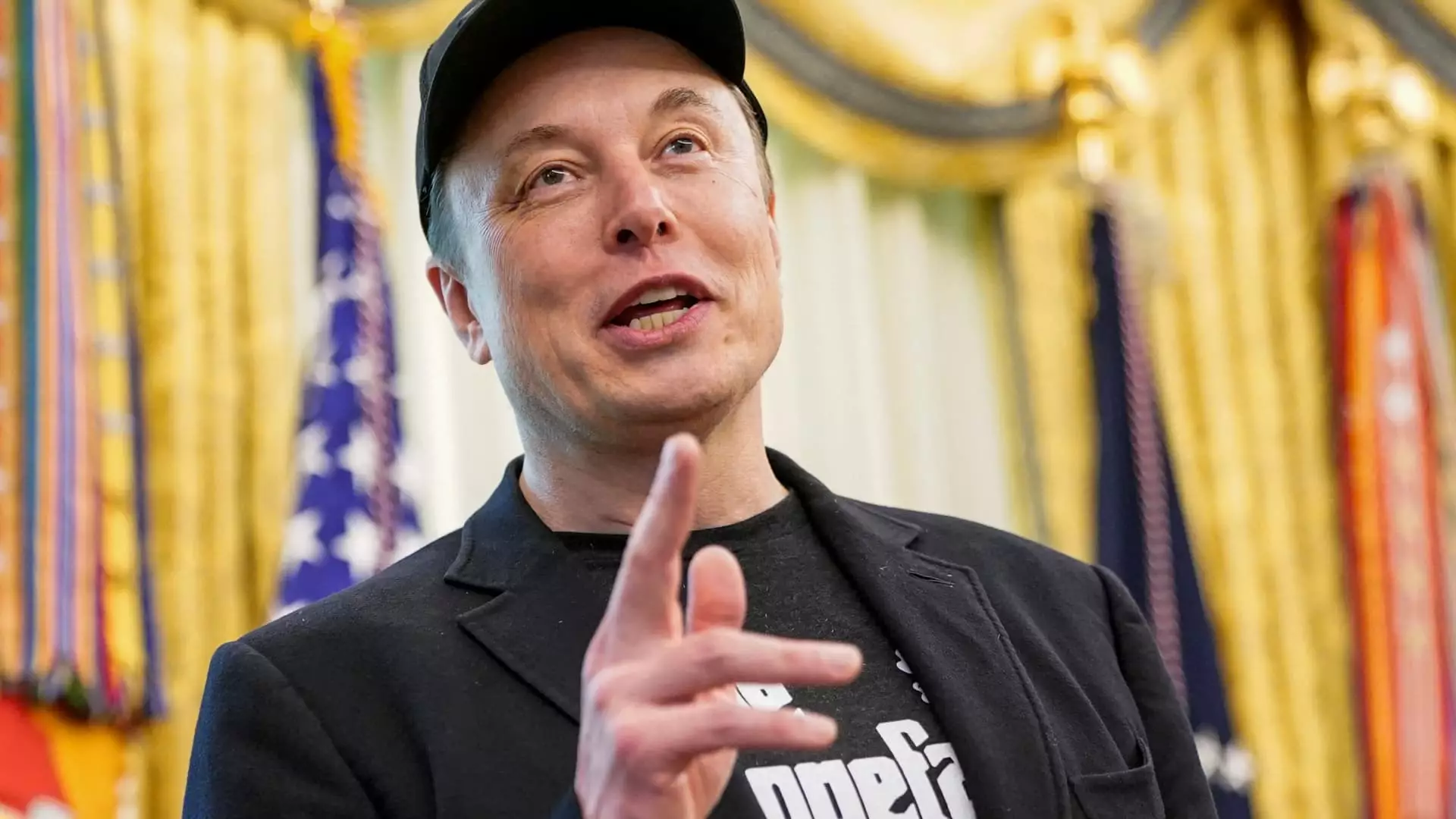In a bold and perhaps unexpected move, Elon Musk unleashed a torrent of criticism towards President Donald Trump’s extensive tax-and-spending-cut bill. The tech billionaire, known for his sharp tongue and unfiltered comments, branded the legislation a “disgusting abomination.” This inflammatory statement not only resonated with a significant segment of the population who fear fiscal irresponsibility, but it also highlights a deeper schism within the political landscape. Musk, who has consistently been a booster for Trump, has suddenly found himself questioning the President’s fiscal strategies, prompting a broader debate about government spending and accountability.
Musk’s comments were not a mere slip of the tongue. They reflect a growing anxiety among Americans who worry that the policies being pursued are unsustainable. When a figure as influential as Musk expresses his disapproval, it suggests that the magnitude of the national debt—projected to soar an eye-watering $2.5 trillion due to the bill—has reached a tipping point for many citizens. What Musk expresses is not just a concern about numbers on a balance sheet; it is a call to action, urging lawmakers to recognize the long-term implications of their decisions on the everyday American.
The Reaction from the Trump Administration
The White House’s swift dismissal of Musk’s comments encapsulates the troubling aspect of contemporary governance—an almost reflexive disregard for dissenting opinions. Press secretary Karoline Leavitt insisted that the President stands firmly behind the bill, labeling it “big” and “beautiful,” despite evidence highlighted by the nonpartisan Congressional Budget Office suggesting it would indeed deepen the deficit. This response embodies a troubling blend of arrogance and detachment from reality; it assumes that the public will rally behind rhetoric rather than a policy grounded in economic principles.
This tension is further exacerbated by Musk’s history of supporting Trump’s agenda. The billionaire’s previous backing of the President’s initiatives makes his criticisms all the more haunting. If a key ally is now lambasting the bill as a financial disaster, what does that say about the efficacy of the administration’s fiscal policies? The political calculus of such confidence in the face of criticism feels particularly misplaced when grappling with the gravity of the economic situation.
Support from Unexpected Allies
Interestingly, Musk is not alone in his denunciation. Republican lawmakers like Rep. Thomas Massie and Sen. Mike Lee have also articulated concerns regarding the bill, aligning with Musk’s apprehension about the ramifications of unchecked spending. Massie’s straightforward acknowledgment of Musk’s stance—“He’s right”—opens a fascinating dialogue within the Republican party about what it truly means to be fiscally conservative. Is it merely about cuts to social programs, or does it include a commitment to protect future generations from crippling debt?
Lee’s exploration of how excessive spending has eroded middle-class stability provides crucial context. The term “Uniparty,” which he used to describe those who enable deficit spending regardless of their political affiliation, hints at an uncomfortable truth: our political landscape is marred by systemic issues that prioritize short-term gains over sustainable economic practices. For those of us who lean towards a center-left perspective, this acknowledgment is not a championing of austerity but rather a clarion call for more equitable and responsible governance.
The Broader Implications of Musk’s Critique
Musk’s engagement goes beyond mere politics; it signifies a larger cultural moment where citizens are demanding accountability. His strong passion in attacking the bill speaks to something many Americans are grappling with, which is the anxiety over unrestrained government spending. It serves as a wake-up call that fiscal irresponsibility can no longer be sidelined. The implications of such spending will ripple through generations, burdening not just today’s economy but crippling the potential for future growth as well.
As we navigate the complexities of fiscal policy, it is vital to reassess our national priorities. Should we continue to indulge promises that come at the cost of our financial stability, or is it time to pivot towards solutions grounded in fiscal prudence? Elon Musk’s outcry against this bill might just be the spark we need to illuminate the darker corners of our fiscal policies, challenging us to pursue a healthier, more responsible financial future for all Americans.

